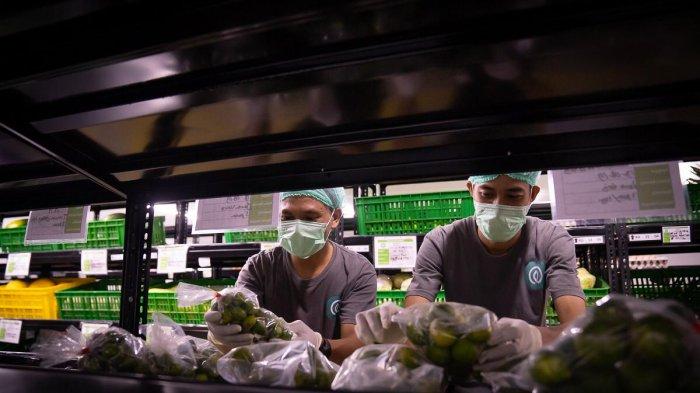TaniHub & Sayurbox’s Strategy to Anticipate Transaction during Ramadan
Share

Tanihub said he was better prepared to face Ramadan this time. This is because they already have stock reserves which are considered sufficient to anticipate the increase in demand. TaniHub Group Head of Trade Procurement Abednego Gunawan said the company always ensures stock availability, including during Ramadan.
“We have reserved stocks about 20 percent higher than the total sales in Ramadan last year to anticipate an increase in demand in 2021,” he said, Sunday (28/3/2021). Furthermore, he said the decision on stock reserves was based on a company system that could measure supply and demand in a measured manner.

“We can also bring in daily necessities [vegetables and fruit] from other areas, for example through our Processing and Packing Center [PPC] facility in Malang or through logistics that pick up goods from PPC, whose delivery schedule is routine every week,” he said.
According to him, for stock availability, we have started cultivating some basic items for fresh products that are in demand during Ramadan, such as chilies and onions, from our partner farmers through TaniFund.
Demand in the Last Year Increased
Agricultural startups TaniHub and Sayurbox estimate that demand for basic necessities will increase during Ramadan. This startup also relies on technology such as artificial intelligence, aka artificial intelligence (AI) to cloud computing (cloud).
TaniHub Group Director of Supply Chain Sariyo said that orders for basic necessities jumped during last year’s Ramadan, amid the corona pandemic. “This is the second year of the pandemic. We estimate there will be a surge, and much higher,” he said, Tuesday (30/3).
To anticipate an increase in demand, TaniHub calculates the need and availability using machine learning and AI. This technology can match the demand and supply of goods. The company also coordinates with farmer partners regarding the availability of goods.

Then, plan to create annual programs and initiatives for Ramadan, including promotions. Last year, TaniHub gave 30% cashback. During the corona pandemic, TaniHub experienced an increase in service requests. TaniHub also managed to attract more than 250 thousand new users last year.
“The B2C sector experiences the surge in demand on the platform,” said TaniHub Group President Pamitra Wineka during a virtual press conference, last January (21/1). The agricultural product marketplace such as Tanihub is flooded in demands.
At the start of the Covid-19 pandemic or March 2020, sales of herbal plants increased by 20% compared to before the coronavirus. As a result, TaniHub also recorded an increase in the gross income of 639% on an annual basis (year on year / yoy) in 2020.
Sayurbox also Uses Technology to Anticipate a Surge in Demand
Another agricultural startup, Sayurbox, also uses technology to anticipate the demand spike during Ramadan.
“We take advantage of the cloud and implement a planting program to find out what the market needs,” said Communications Manager Sayurbox Bintang Angkasa. Through the cloud, farmers can sell their crops optimally and reduce agricultural waste.
Sayurbox will also create a promotional program that allows users to prepare kitchen necessities before Ramadan. During the fasting month, consumers will get offers for products such as fruits.

There is also a flash sale promotion approaching the time of breaking the fast. Sayurbox also prepares a donation program, hampers for Eid, zakat fitrah to fidah. During the first quarter of this year, Sayurbox noted that service demand increased 30% yoy.
Per last year, the company hooked up 1,000 farmers in several areas, including Surabaya and Bali. Farmers’ crops are marketed through Sayurbox, and are categorized based on their quality, such as imperfect products, grades a, b, and c.
If there are still products that have not been sold but are fit for consumption, the company will sell them offline. The company maximizes the potential of the farmer partners’ crops sale with this scheme.




















